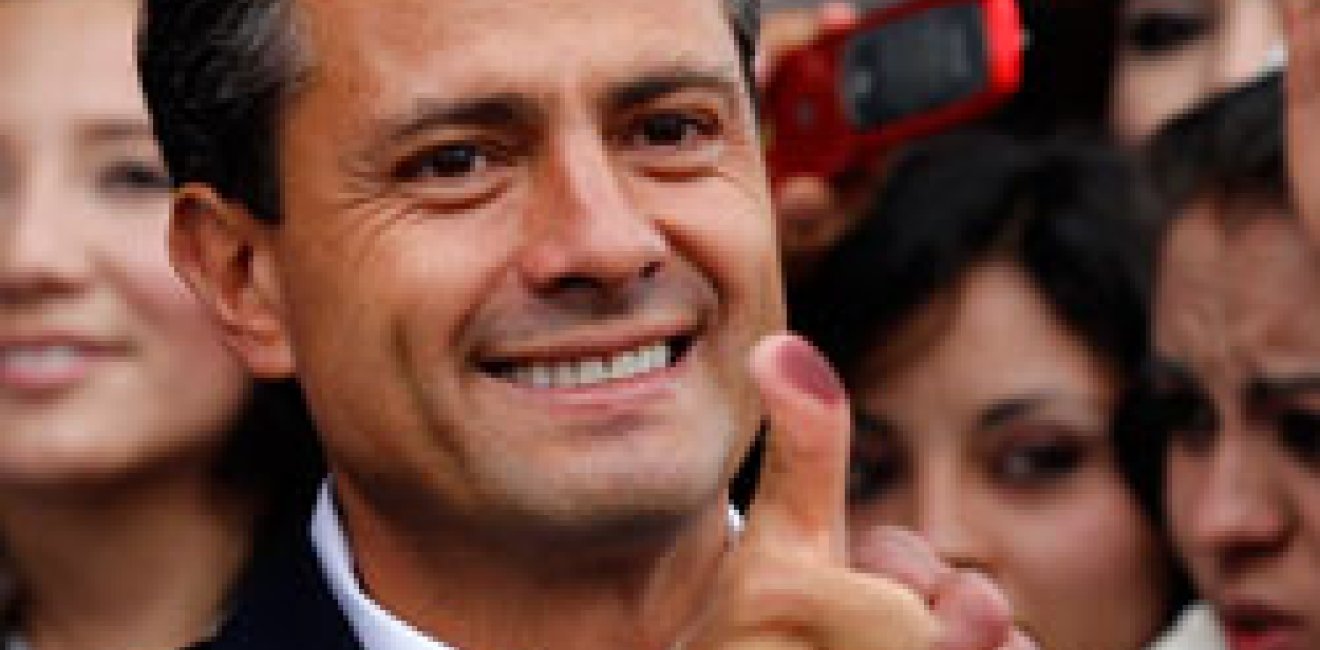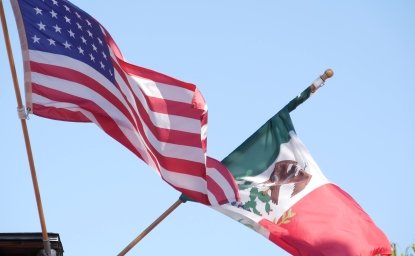Mexico's elections have brought back the PRI, an authoritarian party that ruled Mexico for seven decades. This possibility had worried many observers and politicians in the United States, and yet, surprisingly, it will make little difference for the U.S.-Mexico relationship. This is largely a tribute to how deeply interdependent the two countries are today, as well as the ways in which Mexican society has evolved over the past two decades.
The PRI has been known in the past for its anti-American rhetoric and distrust of the United States. However, circumstances over the past 20 years have completely changed the relationship between the two countries. Mexico has developed a vibrant export-oriented economy that is growing at a respectable 3-4% a year. Its major destination for exports is, of course, the United States.
At the same time, Mexico's expanding economy has allowed it to become the second destination for U.S. exports. States ranging from Texas to Nebraska, Michigan, Tennessee and New Hampshire depend heavily on the trading relationship with Mexico. Indeed, the growing Mexican economy is helping to fuel the expansion of jobs in these states in the midst of an economic crisis at home. Policymakers in both countries have a vested interest in managing these economic ties responsibly, and a new administration in Mexico is sure to make this a priority.
There have also been suspicions that the PRI would renew its old ways in dealing with drug traffickers and jettison the growing security cooperation relationship with the United States. This also seems unlikely to happen, and the new government will almost certainly want to deepen cooperation against drug traffickers. In the past, PRI governments "managed" the traffickers to keep them under control, and scandals and allegations of relationships with cartels hound some former and current state PRI governors.
However, the new government in Mexico has enormous incentives to tackle the violence that has beset parts of the country, and it cannot do that without extensive intelligence sharing, equipment and training from the U.S. government. We are likely to see cooperation against trafficking organizations deepen in the coming years as the new government tries to get control of areas in the north and along the coasts where criminal groups have established themselves. The main criminal groups are now too big to be dealt with through negotiations and deals as the PRI did in the 1980s and 90s. Inevitably, the new government will have to continue outgoing President Felipe Calderon's policy of confronting these groups, although it may find ways of prioritizing the protection of civilians in the process.
Suspicions will, nonetheless, remain in the United States, as in much of Mexican society, about the PRI's honesty and transparency. A party that ruled through corrupt bargains in the past is unlikely to have been born again overnight. Indeed, the allegations of several creative means for vote buying by the PRI during this election worries many that the old ways of doing business are alive and well still in 2012. But even here there is hope.
What has changed is not the PRI but Mexican society and the challenges it faces. Mexicans today have become used to a flourishing democracy with competitive elections, freedom of the press, and greater (if still imperfect) transparency in governance. Mexicans expect politicians to be accountable, police to do their jobs well and courts to be independent. They are often disappointed, to be sure, but their expectations have changed dramatically since the late 1990s when Mexico's democratic process began. The PRI is, in the end, a party that wants legitimacy and to show that it can govern in a democratic era. The new government is almost certain to continue reforms to the courts, police and public services as a way of winning public trust.
The United States has a substantial interest in seeing Mexico's democracy flourish, its security situation improve and its economy grow. Making sure that we have a secure and prosperous neighbor next door, with solid democratic institutions, will provide a buffer in an often hostile world and produce enormous tangible benefits for U.S. workers who depend on exports to Mexico. Deepening our partnership with Mexico is key to the future of U.S. security and prosperity. There will be legitimate doubts about the new government in Mexico, but there will be even more pressing reasons to move forward in strengthening the relationship with our neighbor next door.
- The views expressed in this article are solely those of Andrew Selee.






